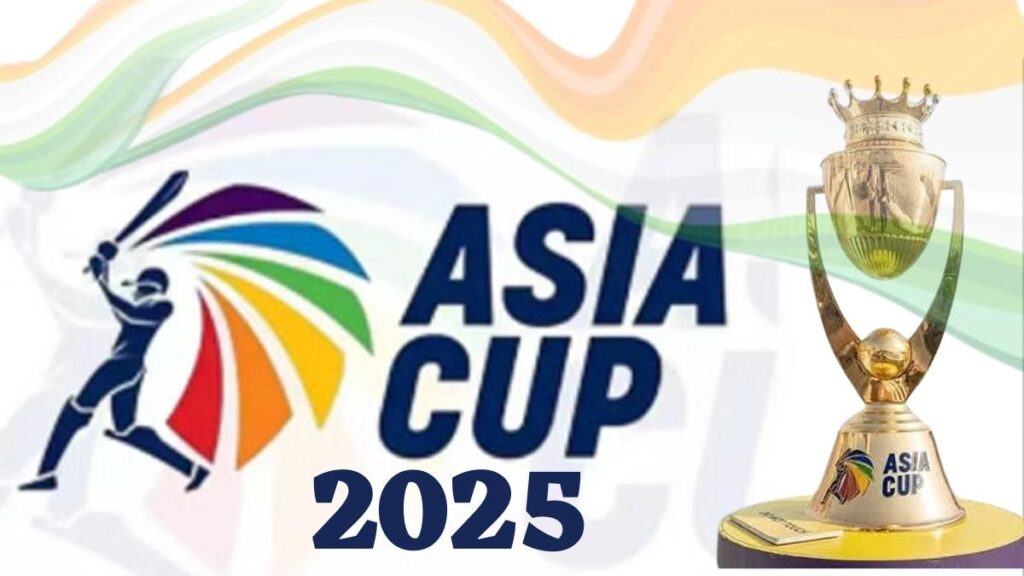- Advertisement -
As the countdown to the Asia Cup 2025 intensifies, cricket fans are already bracing for high-octane clashes on the field. However, one anticipated showdown may not materialize this time around: India versus Pakistan. According to sources and tournament organizers, the traditional arch-rivals might not lock horns in the upcoming Asia Cup due to altered tournament formats and evolving political dynamics. This development has sparked widespread discussion among fans and analysts alike, raising questions about what it means for the tournament’s appeal and the broader cricketing landscape. Here’s a closer look at why India and Pakistan may miss out on their iconic face-off in Asia Cup 2025.
Asia Cup 2025 Tournament Format Could Keep India and Pakistan Apart
In a strategic move to reduce political tensions and ensure a smoother tournament flow, the Asia Cup 2025 organizers are reportedly considering a format that would prevent a clash between India and Pakistan until the later stages of the competition. The revised structure might involve dividing the teams into separate groups or implementing a league-based system where the two cricketing giants are placed in different pools. This approach aims to maintain competitive integrity while minimizing the potential fallout that has often accompanied high-voltage India-Pakistan encounters in the past.
Key features of the proposed tournament format include:
- Separate group allocations ensuring India and Pakistan do not meet in the initial rounds
- A Super Four or Super Six stage where teams qualify for knockouts based on points
- Potential scheduling of India-Pakistan matches only at the semi-final or final level
| Stage | Format Details | India vs Pakistan Interaction |
|---|---|---|
| Group Stage | Two separate groups of four teams each | No face-off |
| Super Four/Six | Top teams qualify based on points | Possible clash depending on qualification |
| Knockouts | Semi-finals and final matches | Highly likely meeting |
Geopolitical Factors Impacting Match Scheduling Between India and Pakistan
The tense diplomatic relations between India and Pakistan have long cast a shadow over their cricketing encounters, often dictating the viability of match fixtures. Political upheavals, cross-border conflicts, and security concerns frequently lead to postponements or cancellations, with cricket boards on both sides navigating a complex web of governmental directives and public sentiment. In recent years, rising nationalism and heightened border tensions have made bilateral series increasingly rare, pushing tournaments like the Asia Cup to reconsider face-offs between the two giants. This geopolitical backdrop exerts significant pressure on the organizers, who must balance the tournament’s integrity with the fragile state of diplomatic ties.
Key considerations influencing scheduling decisions include:
- Government-imposed travel restrictions and visa challenges
- Concerns over player and fan safety amid volatile political climates
- Public and media pressure influencing cricket board policies
- Historical precedents of protests and boycotts affecting match environments
| Factor | Impact on Scheduling |
|---|---|
| Diplomatic Strain | Frequent postponements or neutral venues |
| Security Concerns | Enhanced protocols, sometimes leading to match cancellation |
| Public Sentiment | Increased pressure to avoid fixtures |
Recommendations for Fans and Organizers Ahead of Asia Cup 2025 Draw
Fans attending or following the Asia Cup 2025 should stay updated on the official announcements regarding the tournament’s grouping and schedule. Since political tensions continue to influence cricketing ties between India and Pakistan, the organizers are reportedly adopting a strategic approach to group placements, possibly preventing the two from clashing in the early stages. Supporters are encouraged to plan their viewing and travel accordingly, keeping in mind that fixtures might be staggered to avoid direct encounters unless unavoidable in the knockout rounds.
For event organizers and cricket boards, transparency and clear communication will be key to steering the tournament smoothly. It is recommended to implement:
- Early release of detailed schedules and venue allocations
- Robust security protocols tailored for high-tension matches
- Engagement with broadcasters to manage fan expectations and deliver uninterrupted coverage
- Collaborations with local authorities to ensure seamless crowd management
These measures will help mitigate disruptions and maintain the sporting spirit, ensuring a well-coordinated and fan-friendly event.
| Stakeholder | Key Recommendation | Expected Outcome |
|---|---|---|
| Fans | Stay updated, plan ahead | Safe and enjoyable viewing experience |
| Organizers | Transparent scheduling & security | Smooth event management, minimal disruptions |
| Broadcasters | Enhanced coverage strategy | Better audience engagement |
In Summary
As the Asia Cup 2025 approaches, the possibility of India and Pakistan clashing once again appears increasingly uncertain. Scheduling complexities, political considerations, and evolving tournament formats continue to shape the landscape, potentially keeping these archrivals apart on the field. Fans and cricket enthusiasts will undoubtedly watch closely as plans unfold, hopeful for thrilling matches but aware of the challenges that may prevent one of the sport’s most anticipated encounters from taking place. For now, the future of the India-Pakistan rivalry in the Asia Cup remains a story still in the making.
- Advertisement -


